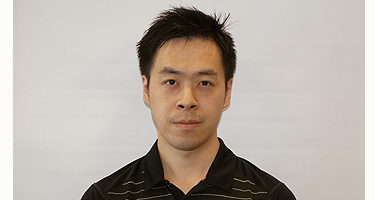Past Event: PhD Dissertation Defense
Hanyu Li, PhD Student, Petroleum and Geosystem Engineering, Center for Subsurface Modeling, Oden Institute, UT Austin
1 – 4PM
Friday Jul 29, 2022
POB 6.304 & Zoom
Numerical simulation of subsurface flow for applications such as carbon sequestration and nuclear waste deposit has always been a computational challenge. The main reason points to the strong non-linearity inherited in the governing equations that describe the multiphysics phenomena. The enormous number of unknows and small timesteps required for stable Newtonian convergence make this type of problems computationally exhaustive. To address this issue, we introduce an adaptive finite element approach guided by a posteriori error estimators to improve computational efficiency.
A space-time discretization scheme with temporal and spatial mesh adaptivity is formulated for multiphase flow system. The solution algorithm adopts a geometric multigrid procedure that starts with solving the system in the coarsest resolution and locally refines the mesh in both space and time. Error estimators that measure the spatial and temporal discretization error are employed to guide such an adaptivity. These estimators provide a global upper bound on the dual norm of the residual and the non-conformity of the numerical solution. Results from two-phase immiscible and three-phase miscible flow are presented to confirm solution accuracy and computational efficiency as compared to the uniformly fine timestep and fine spatial discretization solution. We also resolve the common issue of high frequency residuals in multigrid methods by local residual minimization and dynamic advection-diffusion coupling to achieve additional computational speedup and stability.
In addition to the multiphase flow models, we also study the Biot system that couples poromechanics with flow. A posteriori error estimators are derived with the flow and mechanics solved by mixed finite element formulation and continuous Galerkin respectively in a fixed-stress split algorithm. The effectivity of such estimators is validated by Mandel’s problem which enable us to compute the a priori error with its analytical solution. We demonstrate the efficiency of estimators for adaptive mesh refinement using a fracture porous media example. The validity of the novel stopping criterion which balances the fixed-stress algorithm error with the discretization error is confirmed afterwards. We aim to ultimately provide efficient computations for high fidelity models from carbon sequestration and underground hydrogen storage scenarios.
Hanyu Li is a PhD student in Petroleum and Geosystem Engineering. He works with Dr. Mary Wheeler at the Center for Subsurface Modeling on novel numerical methods for solving multiphysics problems in subsurface porous media. Prior to joining UT Austin, he earned a BS and MS at Texas A&M University in Petroleum Engineering.
